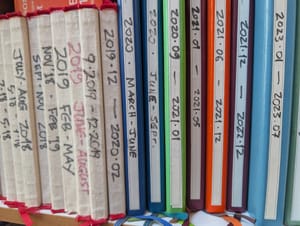The haiku and micropoetry journal I edit, tinywords, got 875 submissions in the course of 2 weeks for our upcoming summer issue. Since I expect I’ll be able to publish about 50 or 60 poems in this issue, that means the acceptance rate is going to be significantly less than 10%. It also means I have been spending a lot of time sending rejection notes the past couple of evenings.
tinywords is set up a bit differently than almost every other literary journal. Poets submit their work using a web form, which puts each poem into a review queue where the editors — myself and several others — can read and rate them. Every poem is read several times by several different editors. In this queue, all poems are presented anonymously or “blind”: we don’t see the name of the author.
In my experience, switching to anonymously reviewing haiku has made a huge difference. Each poem has to stand on its own, without the benefit or hindrance of an author’s reputation. Previous appearances in prestigious journals don’t help, since that information is also hidden.
This system means that widely-published poets have no more advantage than rank beginners. Nobody can rest on their laurels. Nobody gets less consideration because they lack a reputation.
It also makes it easier to give each poem fair consideration. Sometimes a poet will submit an excellent poem in the middle of a handful of mediocre work — or a stinker hidden in the middle of otherwise excellent poems. In the past, when I reviewed incoming haiku via email, it was easier to issue a blanket acceptance or rejection. The anomalies were carried along with, and shared the fate of, the poems that surrounded them. Now, each poem stands or falls on its own merits.
An unfortunate side effect is that poets get an individual rejection or acceptance e-mail for each poem they’ve submitted. Unfortunately these are almost all form letters (there’s no way I could practically write 800 individual responses in the course of a week or two). That can seem hurtful or insensitive to some. But I think the benefit of individual, anonymous consideration of each poem outweighs this downside.
My objective with tinywords is to publish excellent poetry, and the publishing system is set up to serve that goal.


